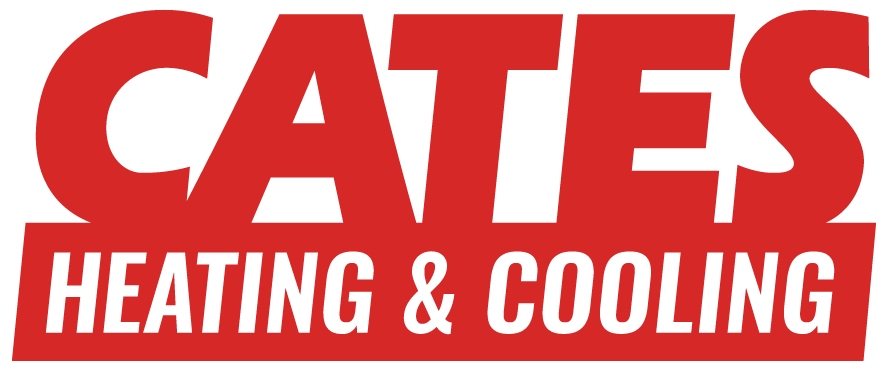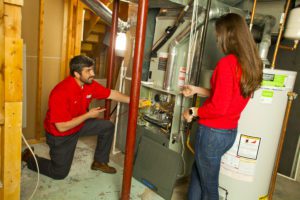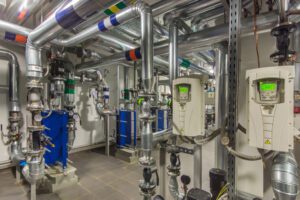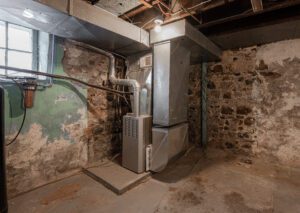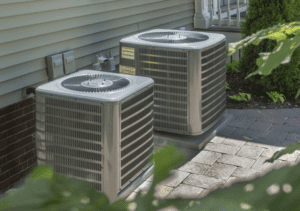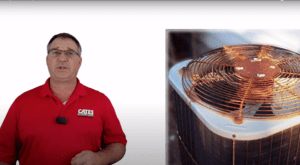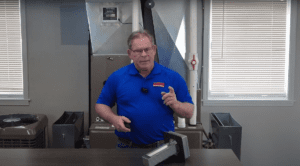Having hot water in your home in something that you probably think very little about from day to day. Water heaters give us quick access to hot water for showers, hand washing, dishes, laundry, and anything else we need. When it comes time to replace a water heater, the easy option is to just replace the old system with something similar. However, there are other options that you may want to consider.
Storage Tank Water Heaters
Also referred to as conventional water heaters, these have an insulated tank where water is heated and stored until you use it. Storage tank water heaters can be powered by electricity or natural gas, with the natural gas option generally using less energy and costing less to operate. However, natural gas water heaters are also more expensive and difficult to install. Tanks are anywhere from 30 to 80 gallons, and water is continually being heated, even if you aren’t home to use it.
Storage tank water heaters require frequent maintenance. Yearly, they will need to be drained and flushed to remove buildup and sediment that gets into the tank. A well-maintained hot water heater should last you between ten and 12 years.
Tankless Water Heaters
Tankless water heaters don’t store hot water. Instead, they use intense flashes of heat to warm water-filled coil, and water is heated on demand. Tankless water heaters are more energy efficient than storage tank models, but they will probably cost you more up-front.
Tankless systems can be sized based on your home and need to provide continuous hot water, which is perfect for large families. In general, it is best to use tankless systems on natural gas instead of electricity, because you might have to upgrade your home’s electrical capacity to keep up with the hot water needs of your household.
Descaling is necessary once a year to keep a tankless system running properly. A well taken care of tankless system is expected to last at least 20 years.
Heat Pump Water Heaters
Electric heat pump water heaters harness electricity to intensify the heat that is pulled from the air or ground. This heat is transferred to the water and circulated into your home. While these models tend to cost more upfront than standard electric models, they use around 60 percent less energy. These water heaters tend to work better in areas of the home that don’t get super cold, and they require large floor to ceiling clearances.
Other Water Heaters
Less common types of water heaters include solar water heaters that use the sun to generate the energy the water heater uses to bring your water to the temperature that you desire. Active and passive models are available. Active solar heaters use pumps to distribute water, while passive options use the force of gravity.
There are two different types of active solar water heaters: direct circulation and indirect circulation. Direct circulation systems have a pump that circulates water through solar collectors into the storage tank. Indirect circulation systems us a pump that circulates antifreeze through the solar collectors and a heat exchanger. Direct circulation systems don’t work well in areas with extremely cold weather but indirect do.
Passive solar water heaters fall into two categories as well. Integral collector storage systems use solar collectors in the storage tank to heat the stored water. The water flows through the plumbing using gravity. Thermosyphon systems use solar collectors that heat from below. The heated water rises and travels into the home through gravity. Passive solar water heaters tend to be less expensive.
Condensing water heaters are another type of water heater with a storage tank. However, these heaters capture hot exhaust gases that would normally be forced out of your home via the flue and blow them through a coil in the base of the water heater. Cold water absorbs the heat to provide your home with warm water. While these are highly efficient, they require a tank with a capacity of more than 55 gallons.
Choosing the Right Type of Water Heater
Evaluating your needs in a water heater can be a challenging task. Many factors go into choosing the correct water heater for your family. One of the first things you should consider is the amount of water you will need to be heated. Large families might be better off getting a tankless system to ensure that everyone can always take a hot shower. A singleton might do better with a conventional water heater because they are less costly up front and don’t provide as much hot water.
Talking to a plumbing professional will be your best bet for choosing the proper hot water heater for your household. A plumber can walk you through the options that are available to you to help you make the right decision.
Call Cates Heating and Cooling today to set up a consultation with a plumber. Kansas clients can reach us at 913-888-4470; Missouri clients can reach us at 816-944-1844.No matter what temperature you set your thermostat to, humidity can quickly make your entire home feel extremely uncomfortable. In the Kansas City Metro Area, summers can be quite humid, and many homeowners may start to notice humidity levels rise in their homes. Cates Heating and Cooling has a few tips for how you can lower the humidity in your home.
1. Use a Dehumidifier
The most obvious way to lower the humidity in your home is to use a dehumidifier. You know it is time to get a dehumidifier if your indoor humidity levels are above 65%. You can purchase an inexpensive portable option, or you can invest in a whole-home dehumidifier.
2. Make Sure You Have Proper Ventilation
In some households, exhaust fans and windows aren’t properly utilized, which can lead to an increase in the humidity level in your home. Bathrooms and kitchens tend to be the rooms that most contribute to additional indoor humidity. Running exhaust fans when you cook or shower can prevent humidity levels from increasing too much. Additionally, opening the windows when there is increased moisture in your home can help.
3. Be Mindful of House Plants
House plants can both help and hinder attempts to decrease humidity levels in your home. First, make sure that you don’t have too many plants in your home. Plants release moisture into the air, and overwatered plants are even more likely to release excess moisture. If you have a lot of plants, you might be adding a lot of moisture into the air of your house. You can also alternate between having your plants inside the house and then outside.
Another option is to choose your plants wisely. Some plants do a really good job removing moisture from the air. Boston ferns are good for moisture renewal. Since plants also remove carbon dioxide from the air, you can rest assured that your moisture-removing plants are doing double duty for you.
4. Dry Your Clothes
Hanging wet laundry indoors can lead to excess moisture in your home—especially in rooms with poor ventilation. To prevent wet clothes from having an impact on the humidity in your home, dry what you can in a dryer and hang other garments outside to dry.
5. Reduce Excess Moisture
Like we mentioned, showers and cooking can add moisture into your home. Shorten your showers as much as possible and avoid boiling water when you are cooking. Both of these activities can make your home feel much more humid. If you have to do either, be sure to ventilate the area as much as possible. Low-flow showerheads can also help reduce the amount of moisture getting into the air of your home.
6. Replace or Repair Doors and Windows
Windows and doors with drafts can cause cold moisture to build up in your home, which will raise the humidity levels in your house. You may need to weatherproof your windows and doors. Adding plastic film to the glass and caulking around the windows can really help reduce drafts.
If moisture starts to build up between the panes of your windows, you will want to consider replacing the windows altogether. The same goes for your doors.
To learn more about having a whole-home dehumidifier installed in your home, contact Cates Heating and Cooling today at 913-888-4470.
